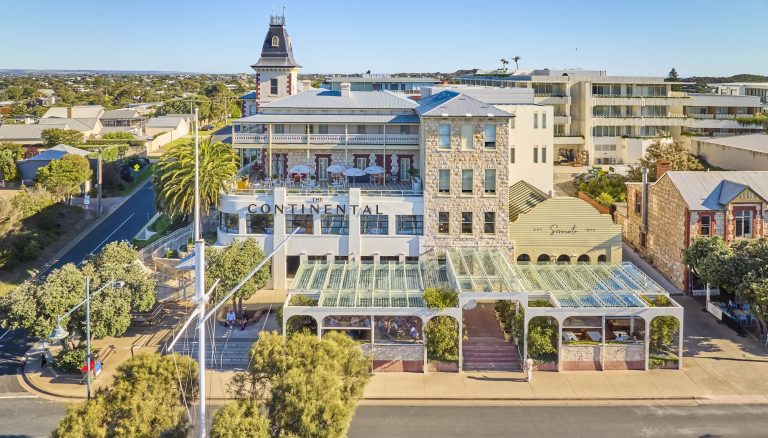Are there more winners than losers when the price of houses are high?

The number of people who benefit from lower house prices is shorter than one might expect. Picture: Julian Andrews
For a long time, the Australian housing market created way more winners than losers. Rising house prices benefited more people than they hurt.
The list of stakeholders who benefit from higher house prices is long. The two thirds of Australian households who live in a home they own want their asset to be highly priced. The same is the case for the 2.3 million mum and dad type property investors.
Banks can sell bigger and longer mortgages if prices are up. Also preferring higher prices are commission-based property professionals (real estate agents, mortgage brokers, auctioneers, and property spruikers come to mind).
For property developers a profit margin of maybe 15 per cent on the cost of the build is more fun on expensive builds. State governments grab buckets full of money with every property transaction in the form of stamp duty – the bigger the transaction value, the more money for the state. Local governments also have their hands in your pocket as they charge council rates.
There is a broader ecosystem of property websites, financial advisers, insurance companies, property valuers, property photographers, and lawyers that is in higher demand when prices are up rather than down.
The list of people, however, who benefit from lower house prices is currently way shorter. First homebuyers and renters prefer housing to be as cheap as possible. So do affordable housing advocates and some non for profits. This group is smaller to begin with and includes a higher share of low-income earners (who tend to lack a decent lobby in Canberra).
Politicians see that most Australian voters are still benefiting from higher house prices. A great excuse to repeat the famous John Howard quip that he had never met anyone who complained about their house going up in value. This led to quite a few silly policies that are pretending to tackle housing affordability while actively driving up prices.
First-home buyer grants and super for housing are the two most obvious examples. I am still looking for one (just one!) economist willing to go on the record to claim that such policies do anything but drive prices up.
Such policies are only in place so politicians can stand in front of a camera to cosplay tackling the housing crisis.

First-home buyer grants and using superannuation to purchase a house merely force up the prices. Picture: Max Mason-Hubers
For decades, house prices kept rising and overall Australians benefited. All good things come to an end though. Eventually the number of people struggling with their mortgage and rental costs becomes so big that they gain political influence. The political developments here are increasingly clear.
The sizeable minority of renters and wannabe first home buyers looks at the two major parties and sees only policies designed to drive up prices.
These voters then look to the third parties — already a third of all primary votes goes to parties other than the Liberals or Labor. The Greens and Teals are the main beneficiaries. Smaller parties will have more political influence.
This will over time push more policy reforms through parliament that are against the direct interest of the majority of the Australian voting and homeowning population. Wait, isn’t that terribly undemocratic? Let me deflect this criticism by pointing to best-selling author Yuval Harari. In his latest book, Nexus, he makes the argument that democracy is not merely about the rule of the majority (autocracies are better at suppressing minorities that the majority dislikes).
Rather, Harari argues, a true democracy protects the rights and interests of minorities. In a true democracy, institutions and systems must be established that protect minorities from majority interests to oppress tyranny of any sort.
OK, Harari talks about more extreme situations like genocide here, but pushing house prices upwards is only all right as long as we can take care of the bottom end that we are pricing out of the market.

The Demographic Group’s Simon Kuestenmacher.
We must have an honest discussion if the bottom of the wealth and income spectrum has already reached crisis point. If our democratic system agrees for this to be the case, it is our democratic duty to establish policies that actively make housing affordable again for the poorest third of Australians.
All the while, climate change related extreme weather events make the big insurance firms more than a little nervous. After a flood or fire, they’d much rather pay to replace property at a lower price point. Insurers wouldn’t need to buy new property but only replace or rebuild property. So, their concern is more about cost and availability of material and labour.
Is there a geographic element here? Where will we first see a policy shift towards making housing cheaper?
Melbourne has the biggest share of Australian Millennials of the big states. Ignoring the concerns or self-interests of older, homeowning voters in Melbourne is slightly easier than in other states.
Simple aged-based demographics suggest that third parties prioritising the needs of renters and prospective first home buyers have it easier in Victoria than in other states. Voting behaviour is obviously more complex but demographics aren’t helping the established parties (especially the Liberals) in Victoria.
Sydney has the least affordable housing in the country. Our largest city is our most unaffordable city and that’s a big problem. At this stage it makes no sense whatsoever for a low-income earner to settle in Sydney. Their quality of life would be higher in a regional city or in any other capital city.

Sydney has the least affordable housing in Australia. Picture: John Appleyard
The shortage of workers at the low end of the income spectrum is a severe risk for the citywide economy. The NSW state government appears to have understood that and doubles down on adding housing supply by encouraging high-density builds. It remains to be seen if NSW can find and encourage enough developers to pull off this transformation.
Sydney and Melbourne are also home to Australia’s biggest YIMBY movements which push for more housing supply in an attempt to improve housing affordability. I see these YIMBY movements and the third parties only growing bigger. This means policies intended to drive down prices will become more common place in the future.
Political change will likely occur before the losers of rising house prices (renters and soon to be first home buyers) become the majority. Greens and Teals are almost certain to increase their share of primary votes.
We are already seeing that the Greens are unwilling to compromise on housing affordability issues as they continue to block Labour policies, that they consider to be half-hearted efforts. I’d expect the first wave of reforms to negative gearing, stamp duty, franking credits to honour existing arrangements. Such grandfathering would make such reforms less impressive or inspirational but would be politically a much easier sell.
If in the long run housing would become significantly cheaper, an unexpected winner might emerge alongside renters and first home buyers. That’s the Australian stock market. Our businesses would benefit from more household wealth flowing into the stock market. A common criticism of high house prices is that we are robbing our businesses of liquidity. Ultimately the list of winners from lower house prices might get quite a bit longer.
Simon Kuestenmacher is co-founder and director of research at The Demographics Group.







